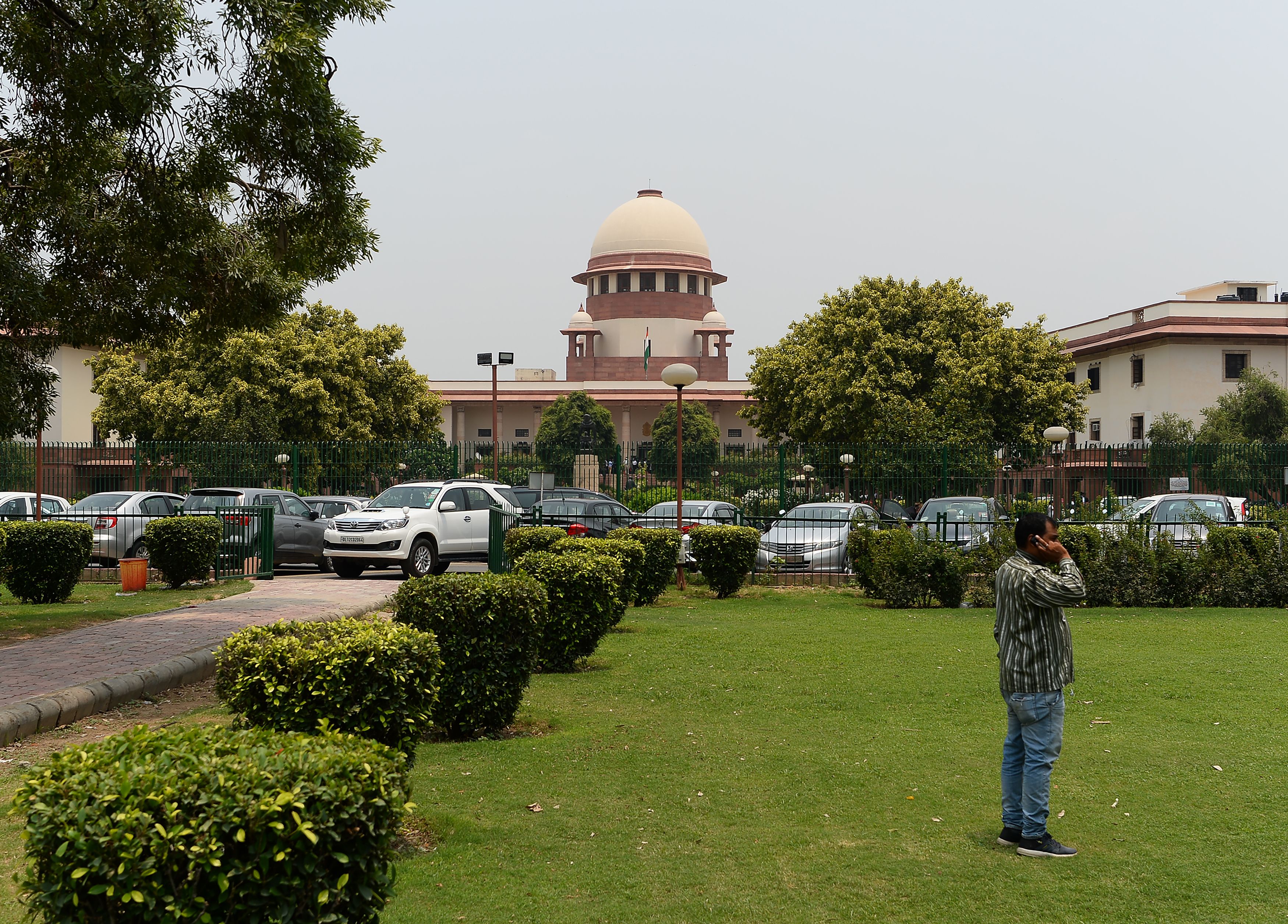India on track to get its first gay high court judge
Saurabh Kirpal is one of the lawyers who successfully led the constitutional battle for decriminalisation of same-sex relationship in India

Your support helps us to tell the story
From reproductive rights to climate change to Big Tech, The Independent is on the ground when the story is developing. Whether it's investigating the financials of Elon Musk's pro-Trump PAC or producing our latest documentary, 'The A Word', which shines a light on the American women fighting for reproductive rights, we know how important it is to parse out the facts from the messaging.
At such a critical moment in US history, we need reporters on the ground. Your donation allows us to keep sending journalists to speak to both sides of the story.
The Independent is trusted by Americans across the entire political spectrum. And unlike many other quality news outlets, we choose not to lock Americans out of our reporting and analysis with paywalls. We believe quality journalism should be available to everyone, paid for by those who can afford it.
Your support makes all the difference.In a major milestone for the LGBTQ+ movement in India, the country may finally get its first openly homosexual judge presiding over a constitutional court.
The development comes after a Supreme Court panel recommended the elevation of senior advocate Saurabh Kirpal as the judge in Delhi High Court, thereby rejecting the federal government’s objections against his proposed elevation.
A three-member Supreme Court collegium led by Chief Justice of India NV Ramana took the decision in a meeting held on 11 November, reported the Indian Express.
The decision on his elevation was deferred at least four times since it was first proposed in October 2017. The Intelligence Bureau (IB), tasked with a background check, in its report in 2018 and 2019 suggested Kirpal’s partner, who is a foreign national, might pose a security risk.
In September 2018, the collegium decided to take it up for consideration “after some time”, reported NDTV. Incidentally, the decision for deferral came days after a five-judge constitution bench decriminalised same-sex relationships in the country, a fight in which Mr Kirpal represented two key petitioners — Navtej Johar and Ritu Dalmia.
The decision on his elevation was again deferred in January and April 2019 and in August last year.
Mr Kirpal in an interview with the Hindustan Times in September 2020 said he believes his sexual orientation as the reason behind the delay in his elevation.
“My professional competence was known to the high court and the Supreme Court collegium and my case for elevation was presumably not deferred for that reason. Media reports seemed to indicate the issue might have been the nationality of my partner who is Swiss. Had I been a straight man with a foreign spouse, this would not have been an issue; former Supreme Court judges have had foreign spouses. But it became an issue only because I am not,” Mr Kirpal had told HT.
However, in February this year, when the then chief justice SA Bobde sought clarification from the law ministry around the conjectures that the delay was indeed due to his sexual orientation, the ministry reiterated its previous stance of objections around the nationality of Mr Kirpal’s partner.
It further said that Kripal’s partner was employed with the Swiss embassy and that he was working with a Switzerland-based non-profit organisation prior to this job.
According to the memorandum of procedures, if the Supreme Court collegium recommends a name for appointment as a judge, the Centre can send the name for review only once. However, if the collegium reiterates the name, the government cannot turn down the recommendation.
Mr Kirpal, a graduate in physics from St Stephens in Delhi, read law at Oxford and Cambridge Universities and has been practicing in India for over two decades.
Specialising in civil, commercial and constitutional law, he has also edited a book called “Sex and the Supreme Court”, an anthology about issues relating to law, gender and sexuality. He is also the son of Justice BN Kirpal, who was the Chief Justice of India from May 2002 to November 2002.
Applauding the court’s decision, former attorney general Mukul Rohatgi said that Kirpal’s elevation was long overdue.
“Kirpal is one of the brightest lawyers and I have had personal experience of his intellect and hard work. In Hindi, I will say ‘der aaye durust aaye’ (better late than never),” he was quoted as saying by Hindustan Times.
Join our commenting forum
Join thought-provoking conversations, follow other Independent readers and see their replies
Comments